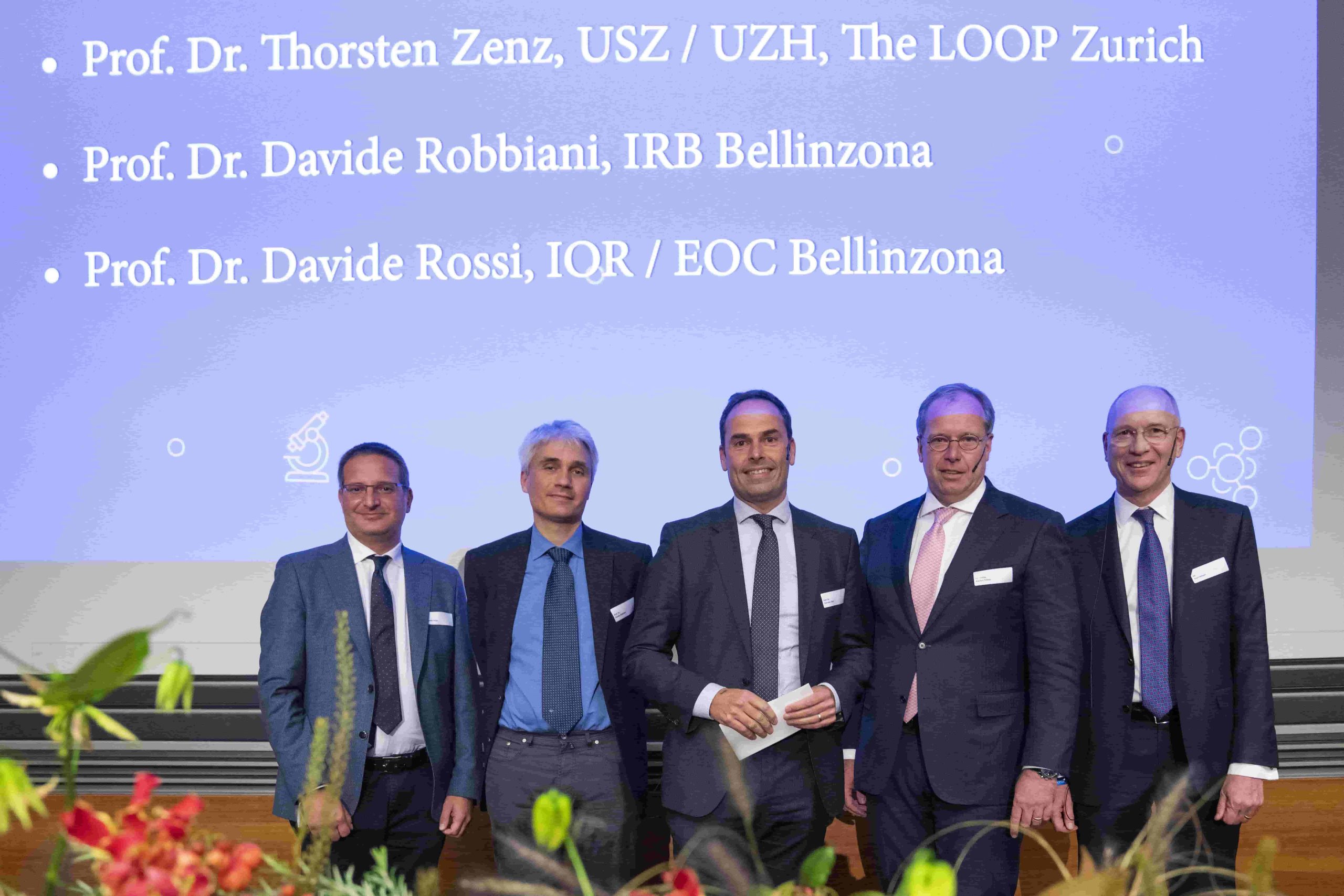Associated Project: Helmut Horten Anniversary Project

Helmut Horten Foundation celebrated its 50th anniversary (October 22, 2021): Picture from left to right: Prof. Davide Rossi (IOR / EOC Bellinzona), Prof. Davide Robbiani (IRB Bellinzona), Prof. Thorsten Zenz (USZ/UZH/The LOOP Zurich), Dr. Markus Fellner (personal counsel to Countess Goëss-Horten), Alain Robert (president of the Helmut Horten Foundation) (picture: Valeriano Di Domenico)
Precision medicine and translational research pave the way to better and individual treatment options for patients.
Patients can now participate in a precision medicine program in Ticino and Zurich focusing on rare lymphomas. These are tumors in the lymphatic system, that are related to immune defects, infections, and inflammation. In an extension to the INTeRCePT project, experts from Zurich and Bellinzona target the following questions: How do normal immune functions, viruses and frequently used drugs for cancer modulate tumors and immune system?
The analysis of molecular reaction in an extremely high resolution allows to assess the effects of drugs and normal and premalignant cells of the immune system and connect the response to the molecular state of the cell. This technology enables researchers to characterize many surface and intracellular proteins in millions of individual cells and process them using computer algorithms. It is possible to differentiate between potentially harmful and normal immune cells. In a spirit of translational research, strategies are developed to use desired immune functions against tumors.
The intense collaboration between experts from the University of the Zürich, the ETH Zürich, the University Hospital of Zürich, Balgrist University Hospital, the Children’s Hospital Zurich and Psychiatric University Hospital Zurich and the Ticino based research institutions Institute for Research in Biomedicine (IRB) and Institute of Oncology Research (IOR) present a unique opportunity to interlock expert knowledge.
This translational and multidisciplinary research project is made possible by the generous support of the Helmut Horten Foundation.
